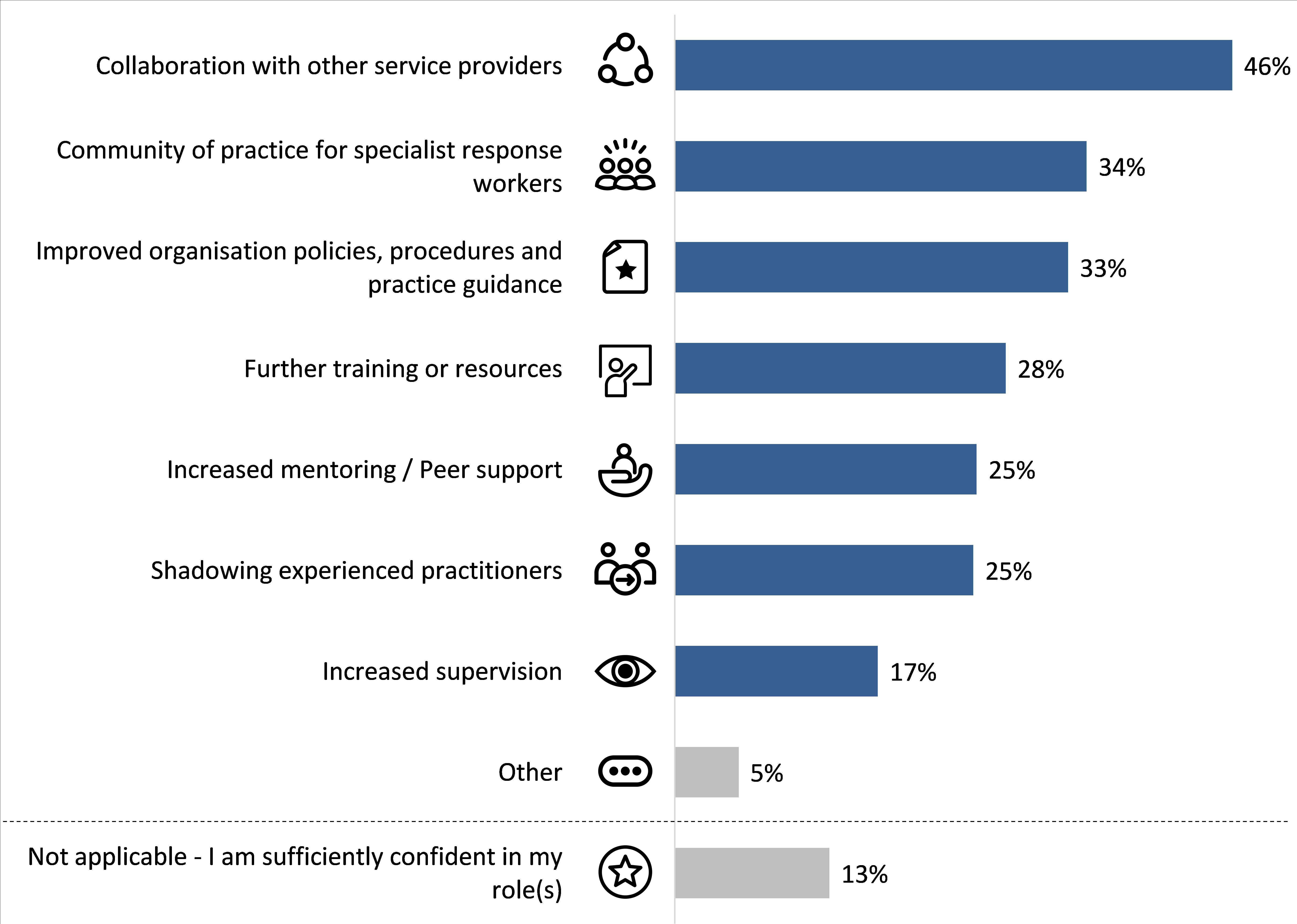As illustrated in Figure 9, overall, around three-in-five respondents within the specialist family violence response workforce indicated that they were ‘extremely’ or ‘very’ confident that they have had enough training and experience to perform their role(s) effectively (61%). In contrast, just 9% reported that they were ‘slightly’ or ‘not at all’ confident.
Respondents within the specialist family violence response workforce felt that the following additional support would be most useful in increasing their confidence in performing their role(s) (see Figure 10):
- collaboration with other service providers (46%);
- community of practice for specialist response workers (34%); and
- improved organisation policies, procedures and practice guidance (33%).
Conversely, fewer than one-in-three respondents indicated that further training, increased mentoring / supervision or shadowing would be beneficial in this context. Furthermore, 13% reported that they felt sufficiently confident in their role, and therefore did not require additional support.
Results differed by age – younger respondents aged under 35 were considerably more likely than older respondents aged over 55 to report that they would benefit from shadowing experienced practitioners (41% versus 17%), improved organisation policies, procedures and practice guidance (47% versus 32%), and increased supervision (28% versus 15%).
Updated

